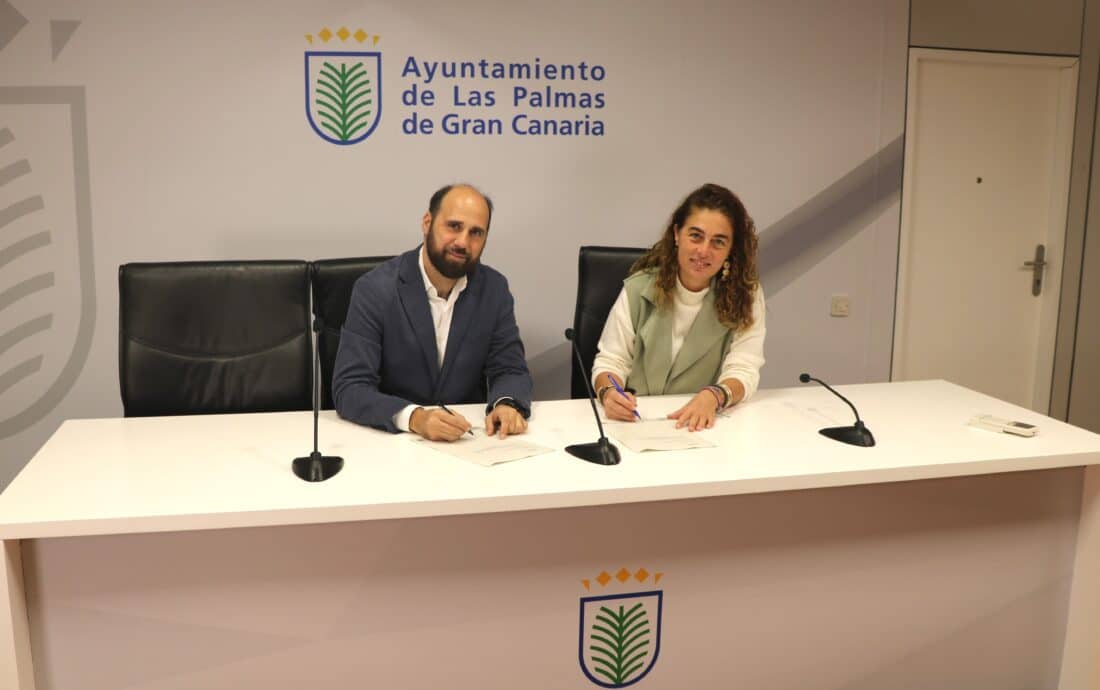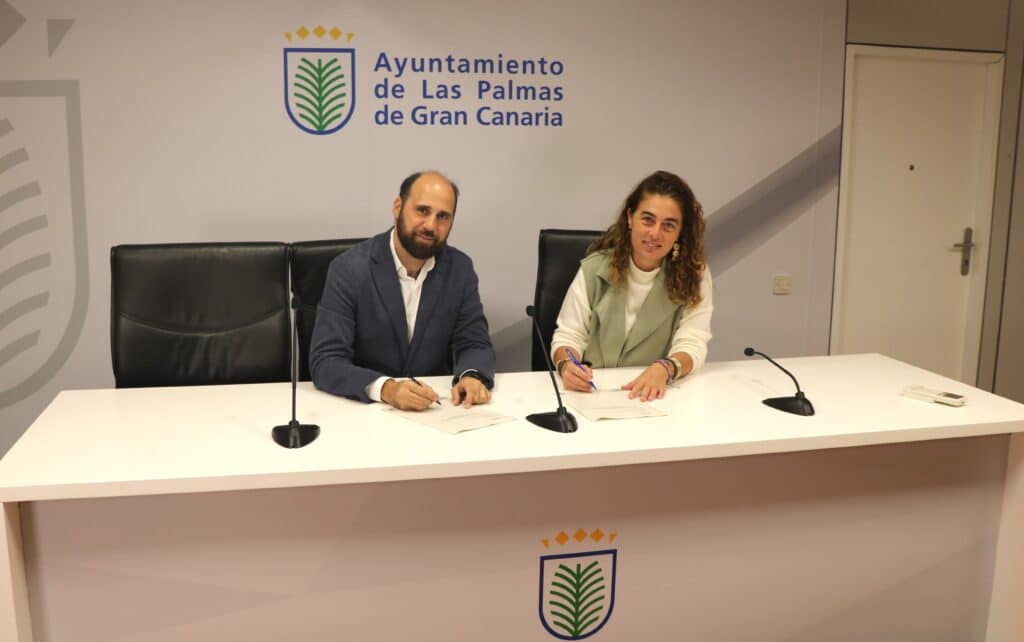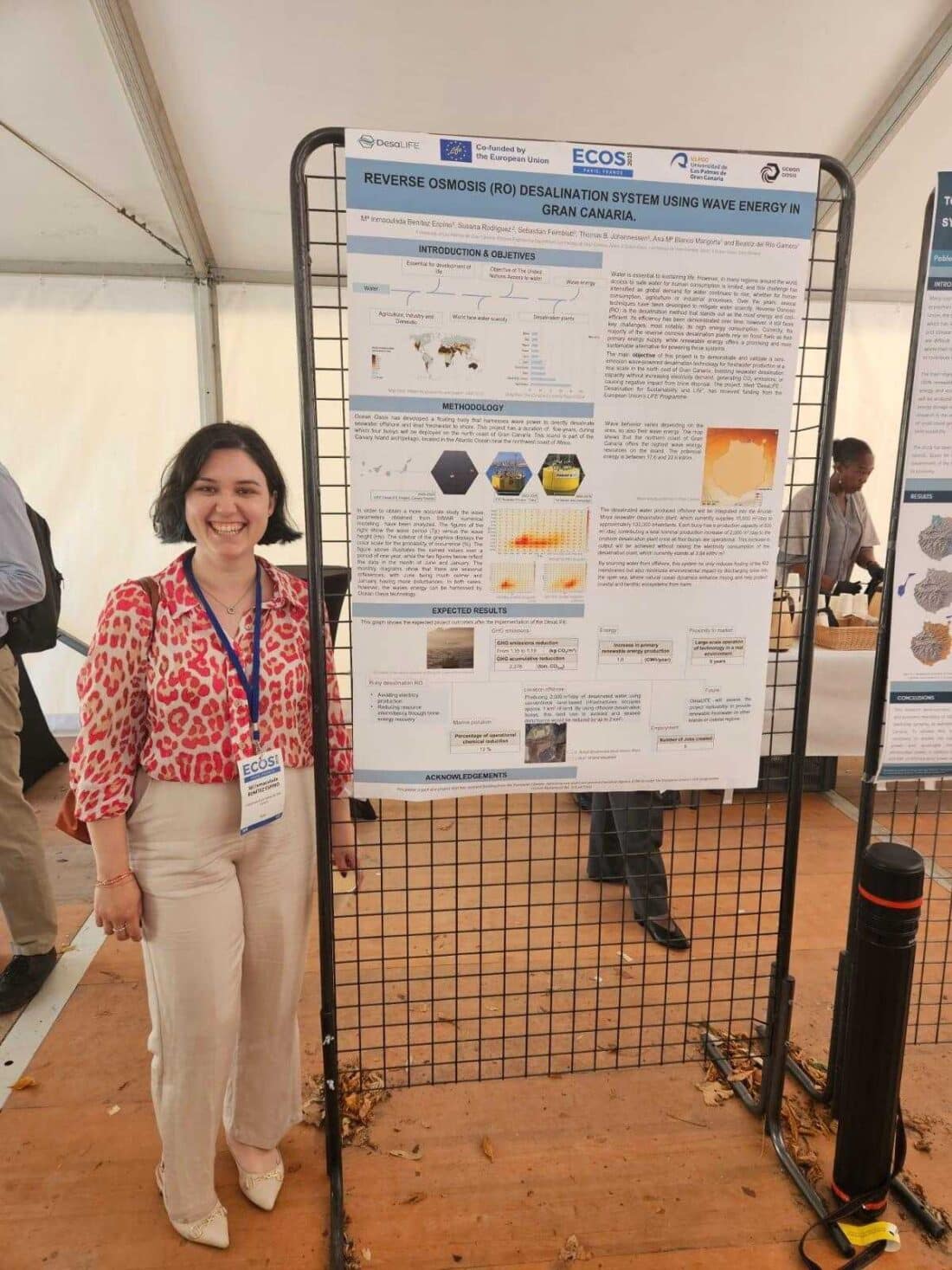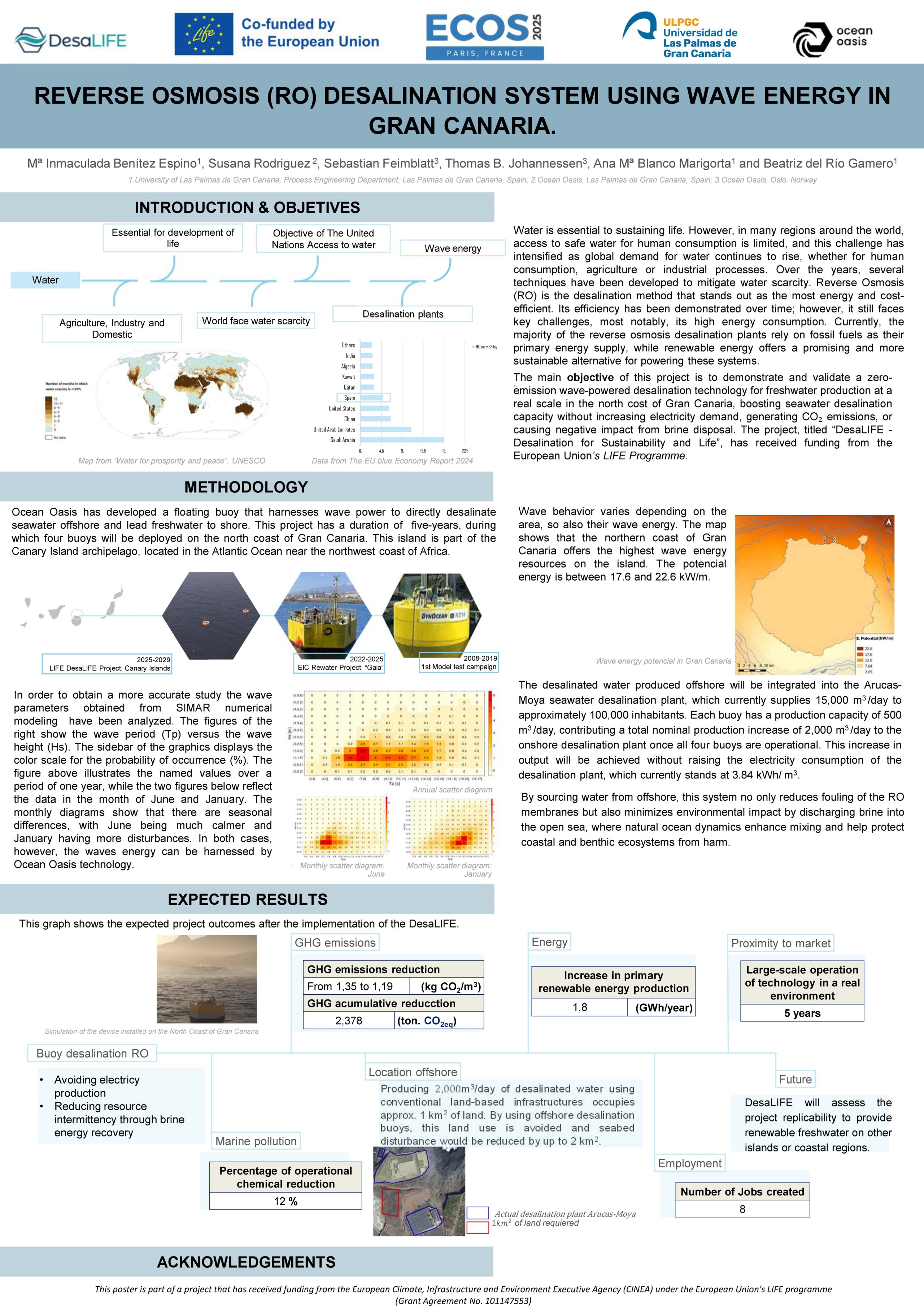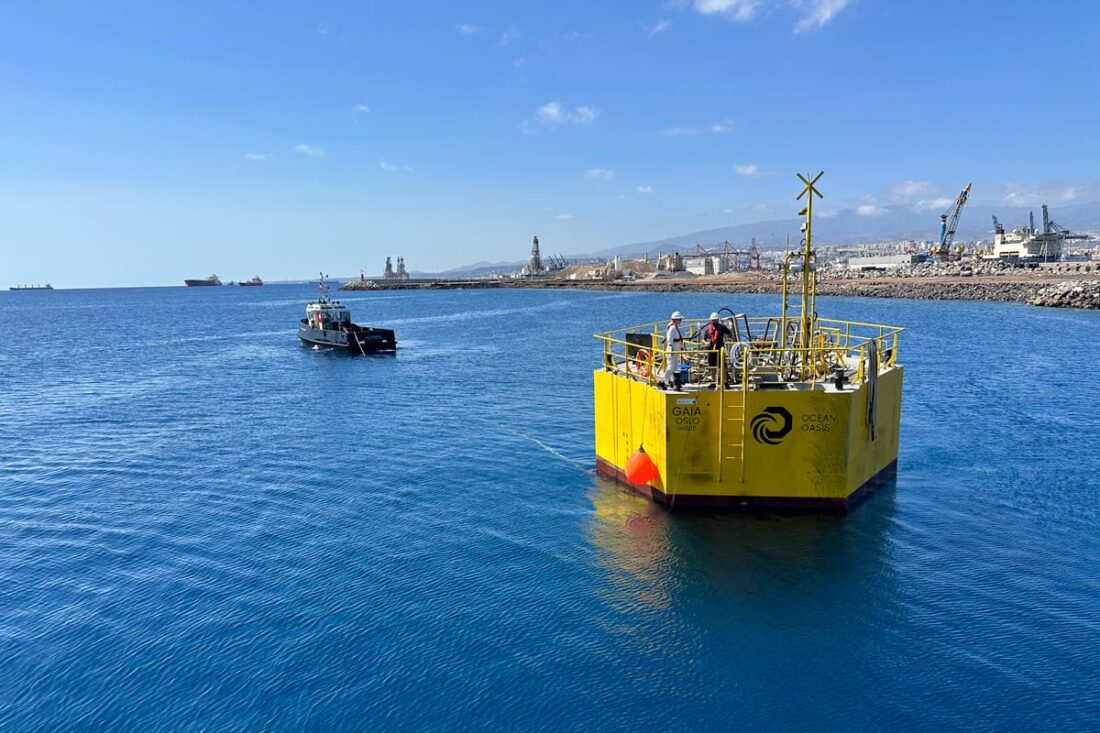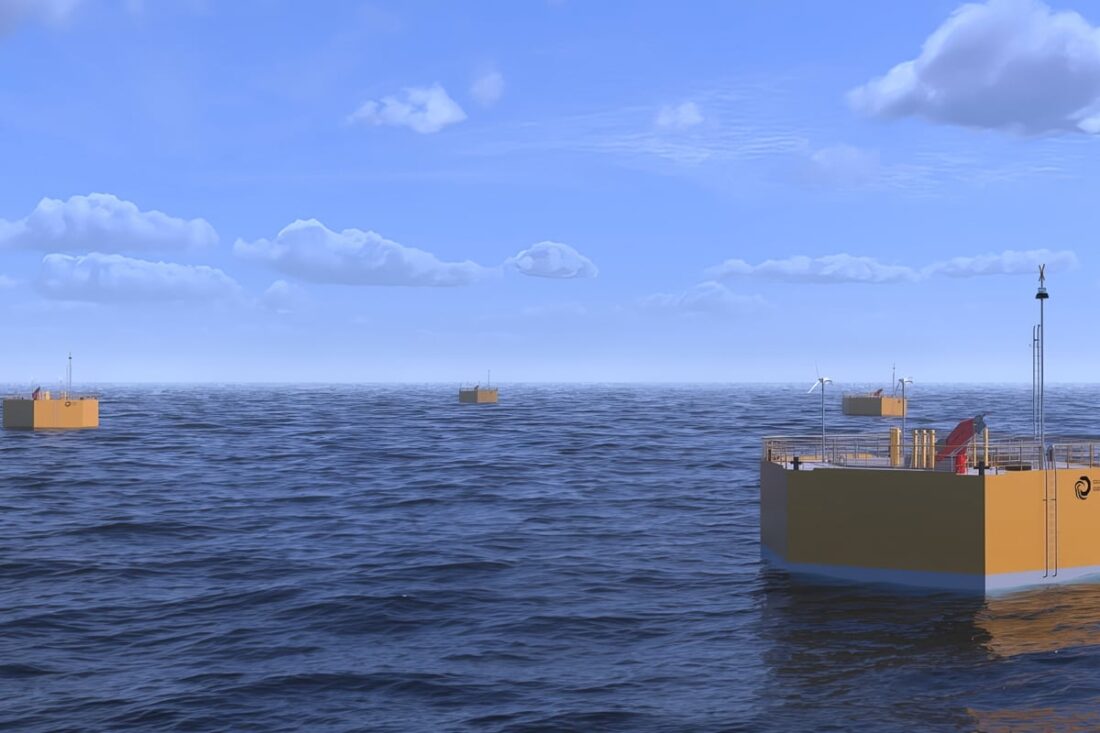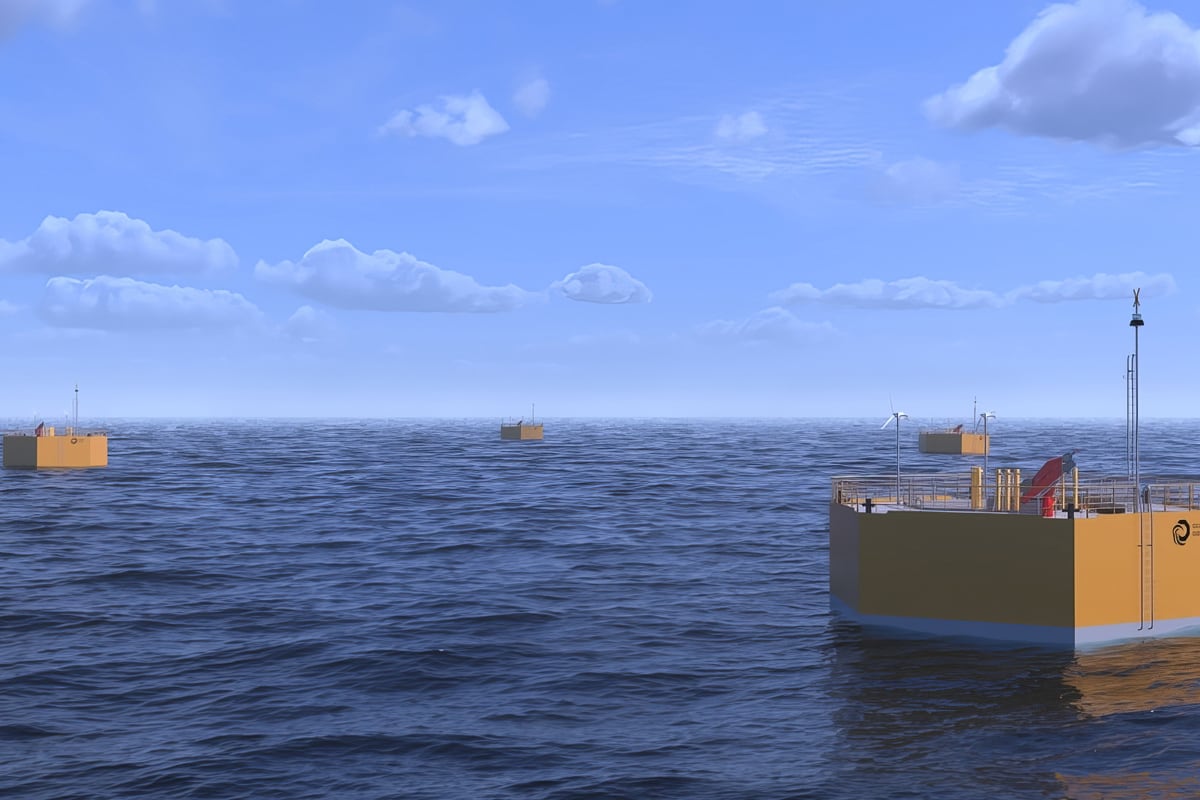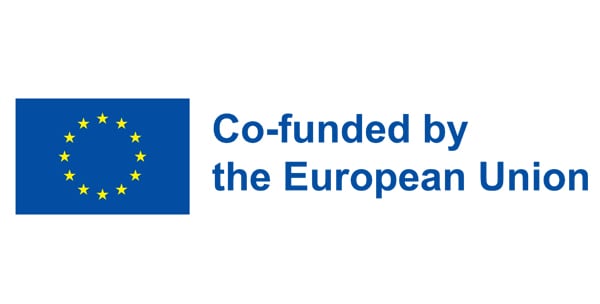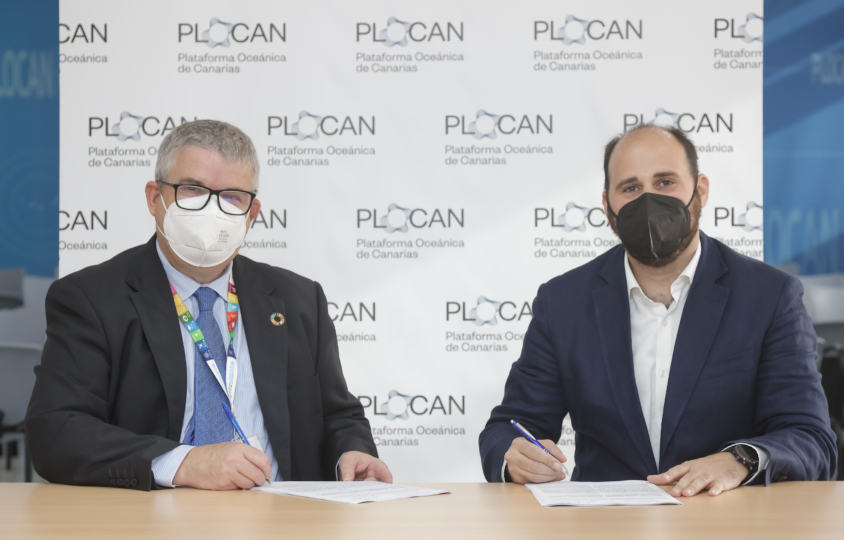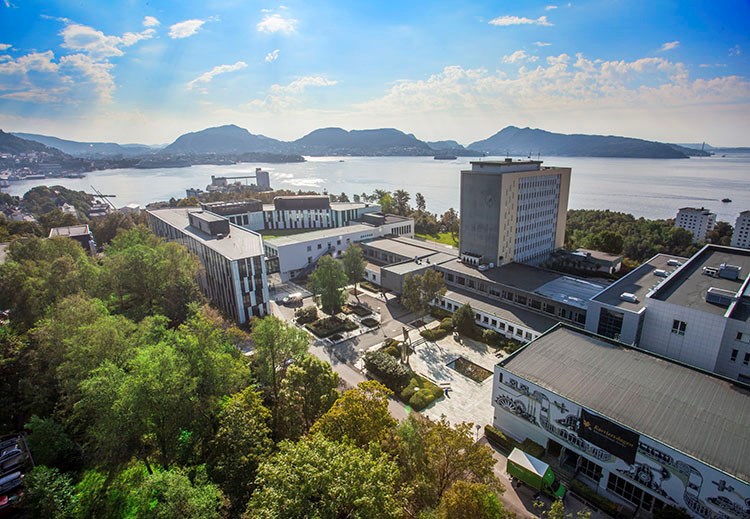Ocean Oasis advances commercial pathway for offshore wave-powered desalination as institutional engagement deepens in the Canary Islands
Ocean Oasis is advancing toward the commercialisation of offshore, wave-powered desalination, with the Canary Islands consolidating their role as a reference region for early municipal assessment and potential adoption. Following full-scale offshore validation, the company is deploying a first fleet of offshore desalination buoys delivering fresh water to the Arucas–Moya desalination plant in Gran Canaria under the EU-funded DesaLIFE project. In parallel, Ocean Oasis is working with public authorities to evaluate how the technology could be integrated into existing water systems.
As part of this phased commercial pathway, the City Council of Las Palmas de Gran Canaria and Ocean Oasis have signed a Memorandum of Understanding (MoU) to jointly assess the feasibility of offshore wave-powered desalination at several locations along the municipality’s coastline. The agreement, conducted within the DesaLIFE project, establishes a structured framework to evaluate the technical, environmental, economic, and regulatory conditions for the potential municipal integration of offshore desalination capacity.
The MoU represents a formal de-risking step as Ocean Oasis moves from offshore technology validation toward municipality-scale application, ensuring that any future considerations are grounded in rigorous technical analysis and institutional alignment.
During the signing ceremony, the Councillor for Strategic Development, Sustainability and Energy, Ms. Gemma Martínez-Soliño, highlighted the broader relevance of the initiative:
“Harnessing innovation developed in the Canary Islands to address sustainability, clean energy, and water resilience is essential. This collaboration positions Las Palmas de Gran Canaria at the forefront of forward-looking solutions for urban water security.”
Sebastian Feimblatt, Co-Founder and Co-CEO of Ocean Oasis, emphasised the importance of public-sector engagement at this stage of development:
“The commercialisation of new water infrastructure technologies depends on close collaboration with public authorities. This MoU reflects growing institutional interest in assessing offshore wave-powered desalination following full-scale offshore validation.”
Together, Ocean Oasis’s full-scale offshore validation, the deployment under the DesaLIFE project, and the MoU with Las Palmas de Gran Canaria advance the company’s commercialisation strategy—progressing from validated technology toward assessed, municipality-level integration, supported by structured public-sector collaboration and growing institutional interest.
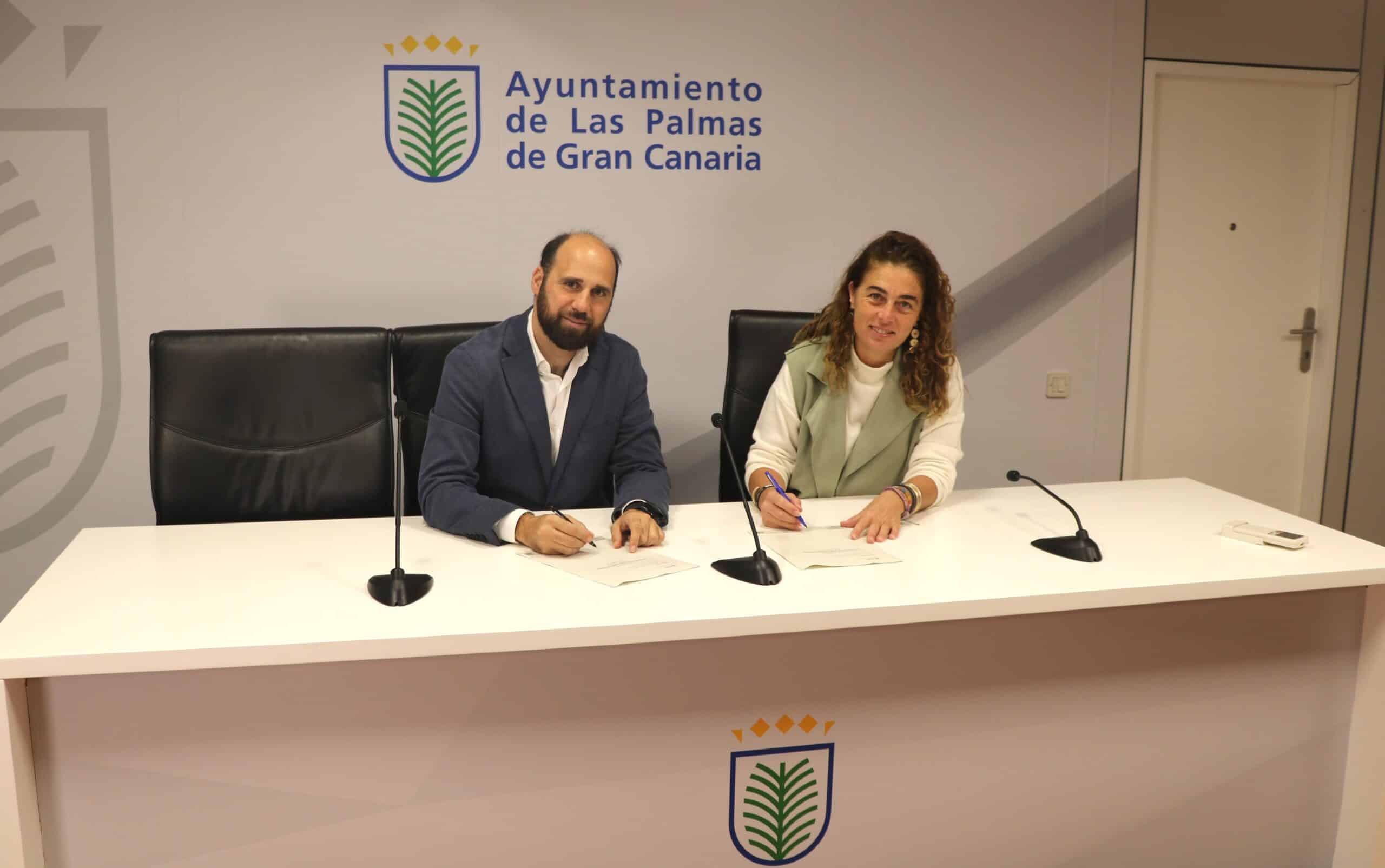
Background and Context
Offshore Desalination and Water System Resilience
Desalination is a structural component of water supply in Las Palmas de Gran Canaria and across the Canary Islands. At the same time, conventional large-scale desalination is among the most energy-intensive elements of the urban water cycle, relying on continuous grid electricity and exposing water supply to energy price volatility, emissions constraints, and system-wide disruptions.
Offshore wave-powered desalination is being assessed as a complementary infrastructure approach. By decoupling freshwater production from grid electricity and fossil-fuel-linked energy inputs, autonomous offshore systems may contribute to long-term supply resilience and reduced exposure to energy-related risks.
Ocean Oasis Technology
Ocean Oasis has developed an offshore desalination system based on modular floating buoys that use the natural motion of ocean waves to generate direct mechanical pressure for desalination. The technology operates without electricity, fuels, or CO₂ emissions and has been validated at full scale in offshore conditions.
Key characteristics include fully renewable, off-grid operation; minimal environmental footprint; modular and scalable architecture enabling phased deployment; and decentralised freshwater production that strengthens system resilience. The technology is particularly suited to island and coastal regions where desalination is a permanent element of water supply and where energy efficiency, emissions reduction, and operational robustness are increasingly decisive.
DesaLIFE and Consortium Partners
The feasibility assessment with Las Palmas de Gran Canaria is conducted within DesaLIFE, a project led by Ocean Oasis under the EU LIFE Programme and managed by the European Climate, Infrastructure and Environment Executive Agency (CINEA).
DesaLIFE includes the deployment of offshore wave-powered desalination capacity integrated with the Arucas–Moya water desalination plant in Gran Canaria and is structured as a replication-oriented framework. In parallel, Ocean Oasis is advancing similar assessments in other Canary Islands municipalities, adapted to local conditions.
In recognition of its strategic relevance and replication potential, DesaLIFE has been formally declared a Project of Strategic Interest by the Government of the Canary Islands, enabling coordinated inter-administrative engagement and a structured pathway for assessment and potential replication across the archipelago.
Execution of DesaLIFE is supported by a coordinated consortium of leading Canary Islands institutions:
GRRES – Renewable Energy Systems Research Group, University of Las Palmas de Gran Canaria, contributing expertise in renewable energy integration, modelling, and applied research.
The Canary Islands Institute of Technology (ITC), a public technology body of the Regional Government of the Canary Islands, providing extensive capabilities in desalination technologies, water–energy systems, and sustainable innovation.
Elittoral, an experienced international coastal and environmental consultancy, responsible for advanced marine monitoring, data analysis, and environmental impact assessment.
PLOCAN – the Oceanic Platform of the Canary Islands, offering one of Europe’s most advanced infrastructures for ocean-based testing, demonstration, and validation of marine technologies.
Ocean Oasis, as technology specialist and project lead, coordinating technical development, regulatory engagement, and system integration across the full scope of the project.
Feb 02, 2026
